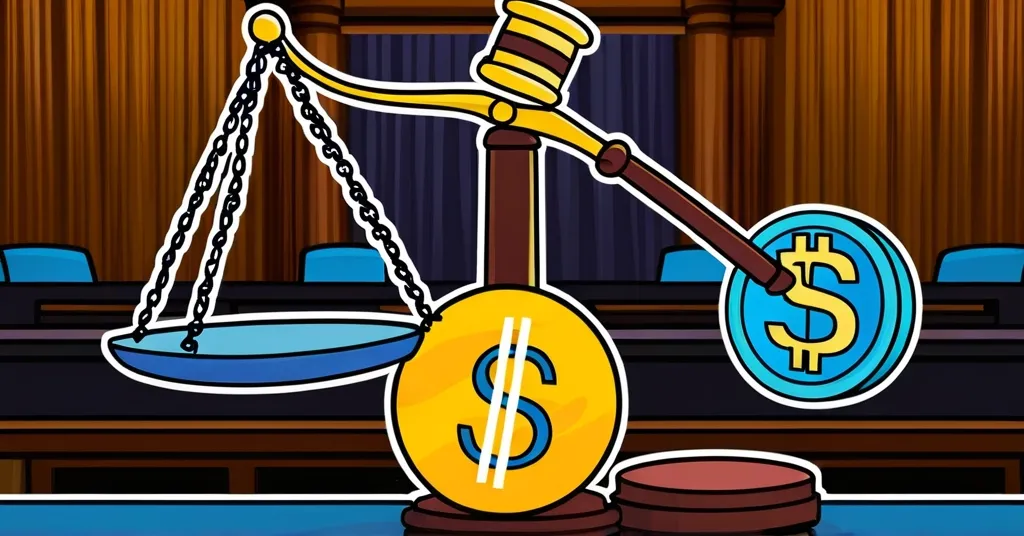IRS’s Crypto Staking Tax Stance Faces Legal Pushback: Jarretts’ Lawsuit Challenges Policy

IRS’s Crypto Staking Tax Policy Scrutinized as Legal Challenges Mount
The IRS is under the spotlight for its unwavering stance on taxing cryptocurrency staking rewards as immediate income. This has sparked controversy and legal challenges, most notably from Joshua and Jessica Jarrett. They argue these rewards should be treated as property, taxable only upon sale, akin to traditional assets like stocks or real estate.
- IRS taxes staking rewards as income upon receipt.
- The Jarretts have been challenging this stance since 2021.
- A new lawsuit was filed in 2024 after a previous dismissal.
- The outcome could set a precedent for proof-of-stake networks in the U.S.
The IRS’s current policy is captured in their Revenue Ruling 2023-14, which mandates taxpayers to report staking rewards’ fair market value once they have the ability to sell or exchange them. The IRS views staking rewards as income received the moment they’re accessible to the taxpayer. However, the Jarretts counter that these rewards should be analogous to new property, which the IRS doesn’t tax until sold, such as crops or creative works.
“Revenue Ruling 2023-14 requires taxpayers who receive staking rewards to report the rewards as income at their fair market value upon having the ability to sell, exchange, or otherwise dispose of them.”
The legal battle began in 2021, with the Jarretts initially suing the IRS. Their case was dismissed after they declined a $4,000 tax refund. Undeterred, they filed a new lawsuit in October 2024, seeking refunds and a permanent injunction against the IRS’s taxation of their Tezos (XTZ) tokens. This case could potentially reshape the legal landscape for proof-of-stake networks in the U.S., providing clarity on how digital asset staking is taxed.
The IRS’s approach reflects broader debates about integrating digital assets into existing tax frameworks. While the IRS sees staking rewards as income due to their immediate liquidity, the Jarretts’ position highlights a significant challenge: the unique nature of cryptocurrencies and the risk of overtaxation due to token dilution. The ongoing legal battle underscores the urgent need for explicit regulatory guidelines that account for these nuances.
Key Takeaways and Questions
- How does the IRS currently tax crypto staking rewards?
- Why are the Jarretts challenging the IRS?
- What is the potential impact of the Jarretts’ lawsuit?
- Why was the Jarretts’ initial lawsuit dismissed?
- What are the broader implications for the crypto industry?
Staking rewards are considered taxable income upon receipt, based on their fair market value. Learn more here.
They believe staking rewards should be taxed as property upon sale, not as immediate income.
It could establish a legal precedent for how digital asset staking is taxed in the U.S., influencing future tax policies.
The court deemed it moot after the Jarretts declined a $4,000 tax refund from the IRS. Read more about the update.
The outcome could affect the regulatory environment for proof-of-stake networks and digital asset taxation in the U.S. Discuss on Reddit.
As this case unfolds, it stands to impact not only the Jarretts’ tax obligations but also the future of IRS guidelines and court rulings. This legal battle may set the stage for altering the regulatory environment for the entire crypto industry, emphasizing the need for tax policies that recognize the unique characteristics of digital assets.



